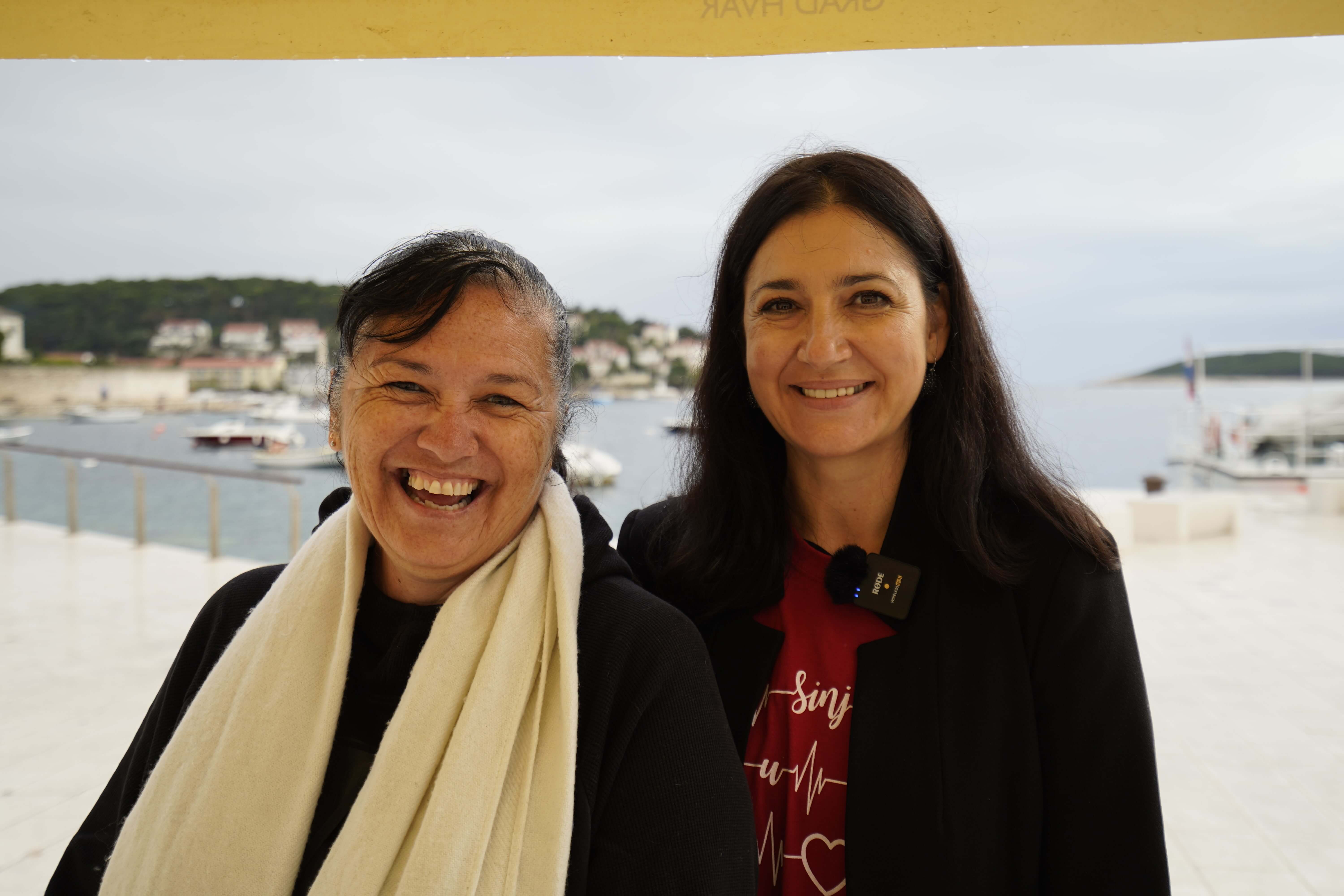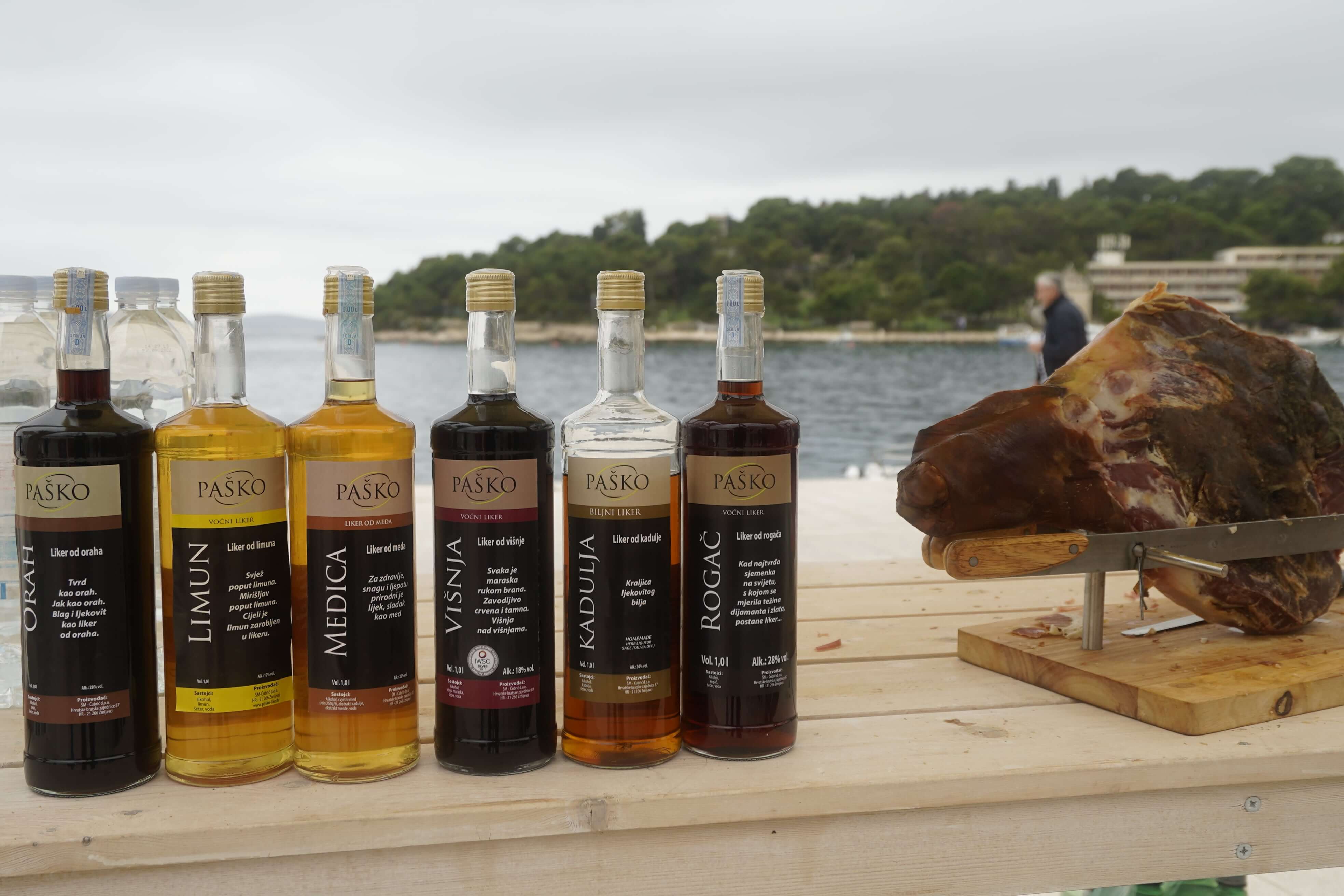First Talking Bench Placed in Veliko Trgovišće, Franjo Tuđman’s Birthplace
November 10, 2021 - As part of the project Great Croatians of Zagorje, the first talking bench has been installed in Veliko Trgovišće, where locals and tourists can learn more about the history of the birthplace of the first Croatian president.
Only thirty kilometers away from our dear Zagreb in Veliko Trgovišće, better known as the birthplace of the first Croatian president, the first in a row was set up: a bench that talks as part of the project Croatian Greats of Zagorje, writes Jelena Holenko for Turističke Priče.
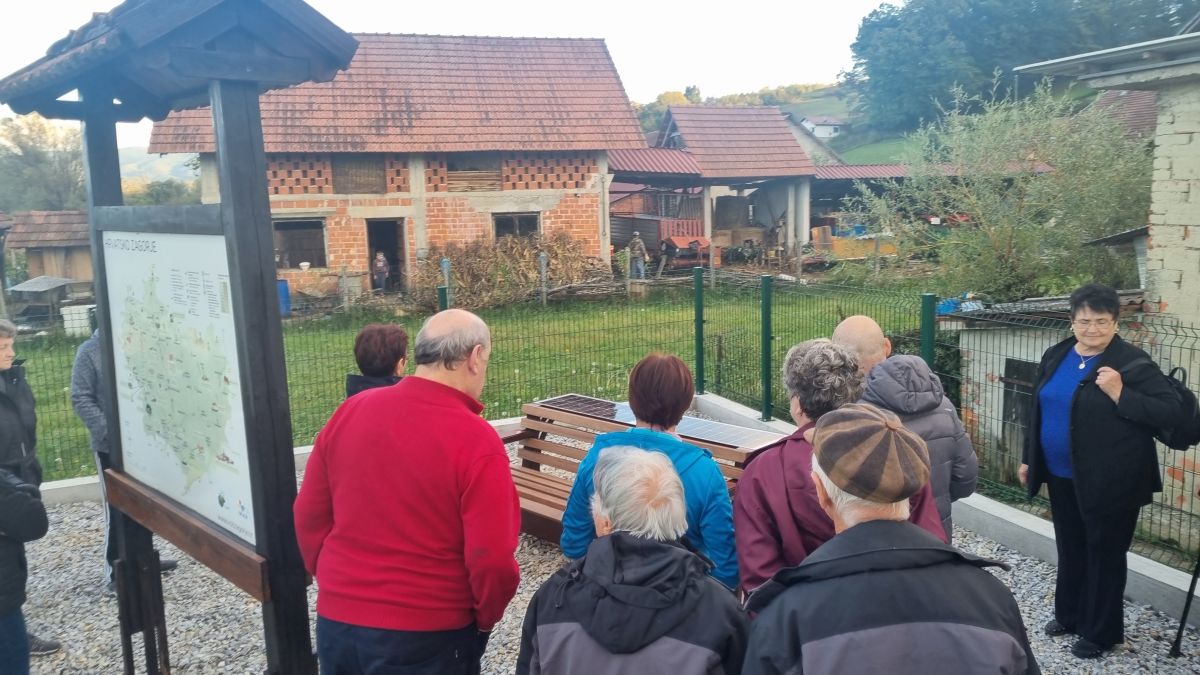
Photo: Jelena Holenko/Turističke Priče
The Tourist Board of the Tuhelj, Klanjec, and Trgovišće areas has launched an initiative to mark sites related to Croatian greats from this area that have left great significance in Croatian history. These are the initiator of the Peasant Revolt back in 1573, Ambroz Broz, better known as Matija Gubec, Antun Mihanović - creator of the Croatian anthem Lijepa naša who spent the last years of his life in Klanjec, the first Croatian president Franjo Tuđman, sculptor Antun Augustinčić, Josip Broz Tito, Veronika Desinička and others.
In honor of the first Croatian president, a rest area with a tourist map and an interactive talking bench has been arranged in the immediate vicinity of his birthplace. The first talking bench is of an educational character and by pressing a button, you can choose and listen to the story of Veliko Trgovišće and its history, or the story of Croatian greats and Dr. Franjo Tuđman who grew up in this place "among the green hills of Zagorje".
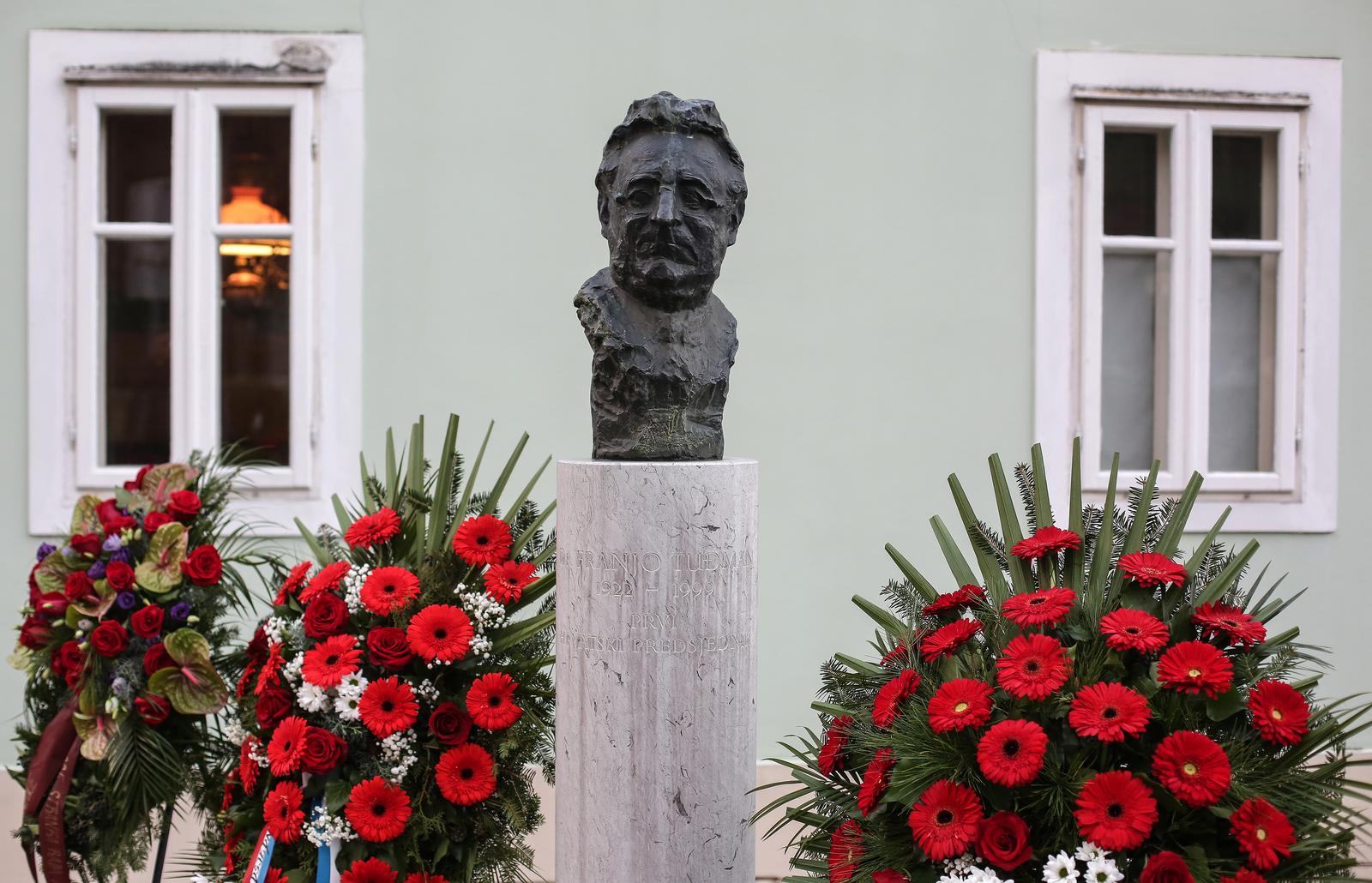
Bust of President Dr. Franjo Tuđman erected in his hometown of Veliko Trgovišće. (Photo: Marin Tironi/PIXSELL)
Other such interactive benches will be set up next to the Dr. Franjo Tuđman Memorial School also in Veliko Trgovišće, in Tuheljske Toplice, in Dubrovnik… and maybe the story of Zagorje and the greats of this region inspires you to get to know the Zagorje region and the benefits it provides!
For more, make sure to check out our dedicated lifestyle section.
Inland Sinj to Island Hvar - Collaboratively Celebrating Croatia’s Cultural Riches and Natural Diversity
Wednesday, 10 November 2021 - We can’t say enough about the amazing hospitality, divine local cuisine, wines, prosciutto, and bread that we experienced at Peškafondo and Big Game Fishing Competition held on the 5-7 November 2021. It is definitely an experience we look forward to attending again in the future, telling others about it and shouting it out to the world, in our endeavour to promote Croatia as an all-year-round destination.
Celebrations
What was also apparent over the weekend was the willingness for all to contribute to the success of this post-season event and to draw more attention to Croatia as a whole, not just Hvar. Arriving on Friday we were thrilled to meet Monika Vrgoč from the Sinj Tourist Board. We were also curious to know how and why Sinj was involved in the event as it is an inland area of Dalmatia in our minds not terribly associated with the islands or to Hvar.
Lucky for us it didn’t take long to figure the how they were involved as lunch for the first day of celebrations was a Sinj specialty, arambaši. This was served alongside cured meat products and traditional music, all providing a very homely heartwarming feel to the event, despite the weather and rain.
Tucking into the arambaši, we wanted to know more. We were thrilled to learn that the Peškafondo isn’t just to promote the island, seafood, and activities. It’s also to showcase the amazing culture of Croatia from inland to the coast, to the islands, and everything in between.
Sinj Traditional Specialities
- Arambaši
Coming to Hvar the chefs from Sinj turned out their traditional specialty: arambaši, a most important festival dish. The arambaši of Sinj consists of chopped beef, smoked bacon wrapped up in pickled cabbage leaves together with a special and traditional blend of spices, including onion, red onion, parsley, pepper, and salt. These cabbage rolls are arranged in a pot along with a beef bone, covered with finely cut pickled cabbage, adding a piece of prosciutto and a few homemade sausages, locally known as sudžuk. This is then left to cook for several hours with no mixing. The aroma that wafted around the event as everyone was arriving, kept everyone on alert clear that there was going to be a great feast for lunch. And we were not disappointed.
We also learnt that while to the foreign/untrained eye, arambaši may look like regular sarma. But sarma IT IS NOT! It differs from sarma in three distinct ways: the meat is chopped, not minced, there is no rice added to the chopped meat mixture and the spice blend is different from the spices used in sarma, creating a unique and traditional taste.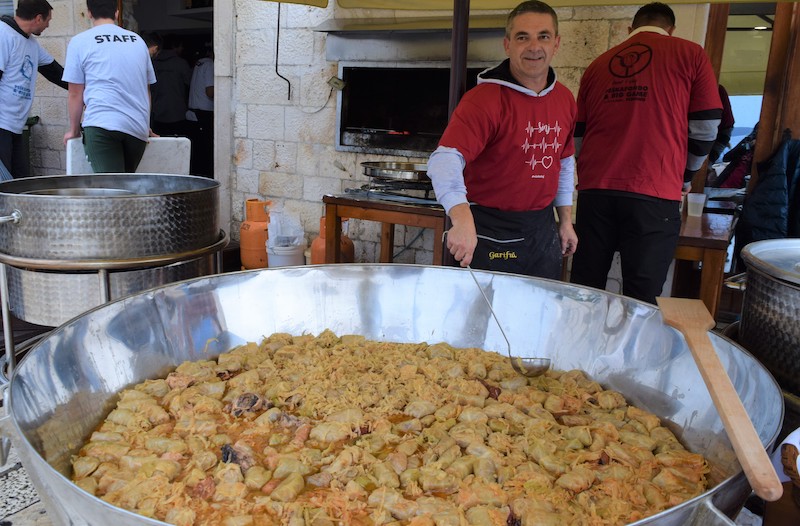
- Uštipci
Along with the arambaši, we were also treated to another speciality of Sinj cuisine called uštipci, a long flat deep-fried bread that was served with a smooth flavoured young cheese. Another delicious specialty of Sinj. Huge thanks to the Sinj Tourist Board in Cooperation with the Secondary School Vocational and the Red Cross for putting on such a great spread!
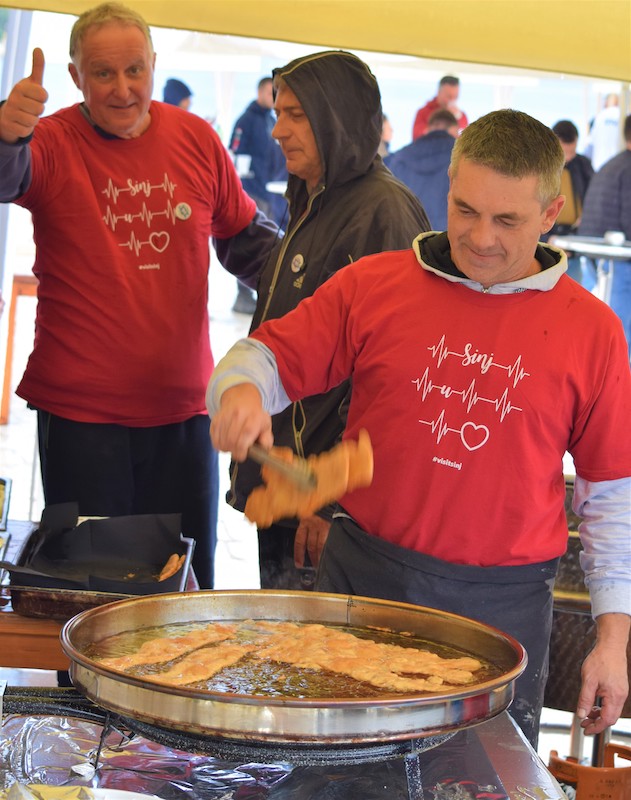
If you, like us, had no idea where Sinj is or what it has to offer, here is a quick overview:
- According to the 2011 census, the town itself has a population of 11448 inhabitants, with the immediate surrounding area having a population of 24,832.
- Located in the heart of the Dalmatian hinterland, Sinj is 30km from the Adriatic Sea.
- The town is surrounded by beautiful mountains of Kamešnica, Svilaja, and Dinara.
- It is situated at the edge of the fertile Sinjsko Polje Valley and invigorated by the amazing crisp, clear Cetina River.
And it’s not just the location that makes Sinj such a great place to visit. We were pretty impressed to hear about the activities and offerings that Sinj has available throughout the year. From the history contained both in the museums as well as the living history demonstrated at the festivals, to more active pursuits like hiking, skydiving... The list goes on!
The Alka tournament sounds amazing! So much so that we have put it into our diary next year. Learn more about this global festival here.
Cooperation and Collaboration
Now we can’t just leave this story here because on the second day there was another amazing collaboration, with chefs and friends from Skradin outdoing themselves with serving their famous Skradin risotto and of course famous oysters for lunch. Find out more about this amazing slow-cooked dish in an article written by Expat In Croatia.
Again, the food was delicious, amazing smells and tastes, and very interesting for us to learn about the cooperations that were going on to create this festival.
The squid was like the second event, the main event being the people altogether, celebrating the great atmosphere from the sea from the culture, and from the people.
If this is anything to go by combining resources and creative efforts means increased reach and exposure while spending more efficiently. Together, we will elevate Croatia’s platform, enabling Croatian culture to thrive as an all-year-round tourism destination.
Read some history to the Peškafondo event here: Celebrating Ten Years of Peškafondo
Sound Barrier Will Be Broken as Part of Regular Flight Activities, Says DM
November 10, 2021 - As part of the exercises carried out by Croatian fighter jets in the temporary test flight zone of Čazma from Wednesday to Friday, the Defense Ministry has announced that the sound barrier may be broken and asks citizens for their understanding and patience.
The Ministry of Defense reported that on Wednesday, Thursday and Friday it is possible to expect the sound wall to be breached as part of the regular flying activities of Croatian Air Force fighter jets, reports HRT News.
From 12 noon to 4 pm on Wednesday and on Thursday, 11 November and Friday, 12 November from 10 am to 4 pm, pilots of the 191st Squadron of 91st Wing fighter jets will conduct regular flying activities during which a sound barrier can be expected to break through.
The planned test flights are being held at subsonic speeds in the temporary test flight zone of Čazma, which is geographically remote from the northeast, in the range of 600 to 1000 meters above the ground.
Čazma is a town in Bjelovar-Bilogora County, Croatia. It is part of Moslavina. It is situated 60 kilometers east of Zagreb and only 30 kilometers from the center of the region: Bjelovar. The town of Čazma is one of the oldest towns in the Republic of Croatia.
After the test flights in the temporary test flight zone Čazma, the last phase of testing the aircraft will be carried out, during which the sound barrier is expected to be breached in the Zagreb, Bjelovar-Bilogora, and Koprivnica-Križevci counties at an altitude of 1,000 to 10,000 meters and in the area Požega-Slavonia, Osijek-Baranja, Virovitica-Podravina,
Bjelovar-Bilogora and Koprivnica-Križevci counties at an altitude of over 10,000 meters, in compliance with all safety measures.
During the implementation of the planned flights and due to the breach of the sound wall, short-term amplified noise is expected, and we ask the citizens for patience and understanding, the Ministry of Defense reported.
For more on politics, follow TCN's dedicated page.
Jandroković: COVID Pass or Negative Test Required to Enter Parliament as of 15 Nov
ZAGREB, 10 November, 2021 - Croatian Parliament Speaker Gordan Jandroković confirmed on Wednesday that as of 15 November, when the measures of the national COVID-19 crisis management team come into force, a COVID certificate or negative test would be needed to enter the parliament.
Members of parliament without a COVID certificate will be able to get tested, so if they test negative, they will be able to enter the building and participate in debates. Those who refuse to get tested and do not have a COVID certificate will not be allowed to attend the session, but will be able to join via video link, Jandroković told reporters after a meeting of the parliament presidency.
According to Jandroković, four groups of MPs will be able to join the session via video link, including those without a COVID certificate, those who do not want to get tested, those in self-isolation and MPs who have certain medical conditions which their doctors have to confirm.
MPs that have a COVID certificate will not have the possibility of joining via video link.
Position of MPs already different
The position of MPs is already different from that of other employees, and some do not attend sessions regularly even now, which makes them privileged, the parliament speaker said in response to the question whether the possibility of working online made MPs privileged compared to other employees.
In a situation when the epidemiological situation is deteriorating, we have sought a solution to protect lives and health on the one hand, and on the other hand we cannot prevent a member of the parliament chosen by the people from participating in the work of parliament, so a video link solves that problem, he said.
In the first phase, costs of testing will be borne by the state for MPs and for everyone else, but the location has not been determined yet.
MPs will still have to wear masks, except when speaking.
Call for citizens to get vaccinated
Asked whether the parliament should be making decision and not the national COVID-19 crisis management team, Jandroković said that for everything should stay as it is and that it was difficult to guess what the future might bring.
The parliament speaker called on citizens to get vaccinated, underscoring that inoculation, regardless of all objections, was the best measure in the fight against COVID, especially receiving the third dose.
He himself, he said, has recovered from coronavirus, received two doses, so he is not ready for the third yet, but as soon as he receives a doctor's recommendation, he will get vaccinated.
Jandroković announced that the parliament would begin its next session on 25 November and would sit until 15 December.
Split Winter Tourism: The Daltonist Presents Chef Takeovers, Live Music, Art Exhibits
November 10, 2021 - Is Split winter tourism that hard to achieve? Croatia's second-largest city and the star of summer loses its buzz as soon as the seasons change. But it doesn't have to be that way. Our new TCN series looks at the Split businesses working hard in winter to give locals, and visitors, the environment they deserve. First up, meet The Daltonist.
I'll never forget being congratulated after making it through my first Split winter as if I was nuts to attempt such a feat.
"How did you survive?"
"How could you enjoy it after living in California and London?"
"Isn't winter in Split too boring for you?"
But the reality of my first winter in Split is wildly different. It's the reason I decided to stay in Croatia at all. Sure, it pales in comparison to the bustling summer months, but thanks to its mild climate and sunshine, I'm still wearing sunglasses here year-round. And if you can get through that one bad month of brutal bura, I promise the weather will reward you the rest of the year.
Split winters, however, are not nearly used to their full potential. Instead, they are reserved for the locals to hibernate after a busy summer, with 50% of restaurants, bars, and businesses saying goodnight after a season well done. The once-lively old town becomes a ghost town, with the few flickering lights of restaurants and cafes reminding us they're still there should we wish to visit them. And those same businesses endeavor year after year, hopeful that this offseason will be the one to bring life back to Split. TCN is shining the spotlight on them in our latest series.
First up, we meet owner Luke Stewart and marketing & brand director Flor Vignaroli of The Daltonist, a craft cocktail bar and gastropub around the corner from Pazar and just outside the palace walls.
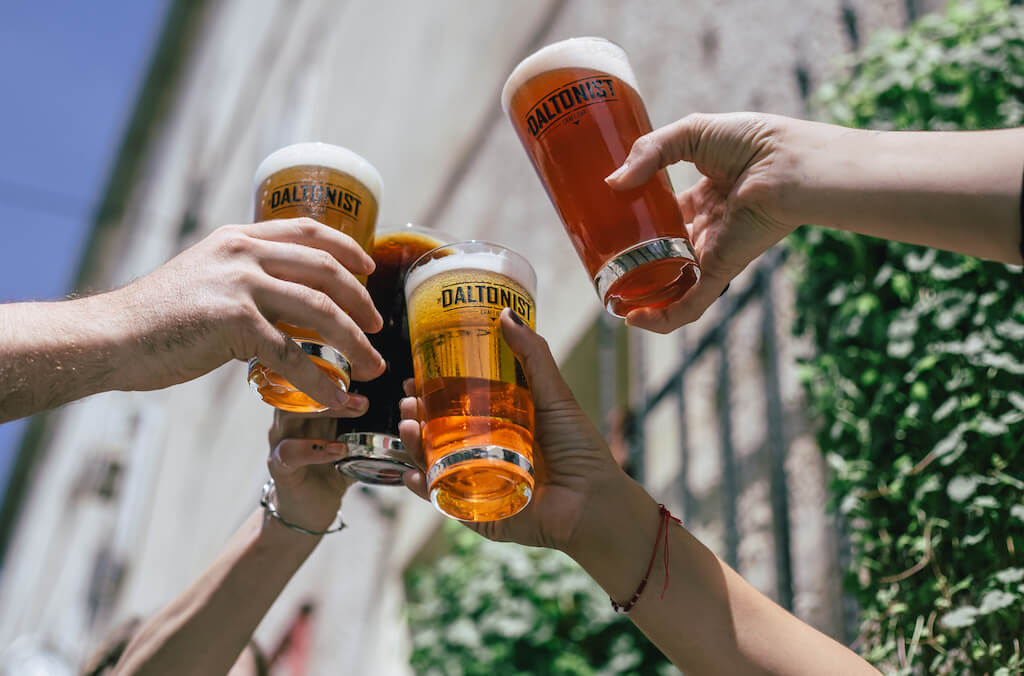
Croatia and Split had successful year-round tourism in the 1980s until the outbreak of the Homeland War, but now the Dalmatian coast sleeps through the winter. Why do you think that is?
Luke Stewart: I think a lot of it is cultural. I think now, compared to the 80s, there is much harder work in the summer. The summers are crazy and tiring. So you combine this culture of people not wanting to work so much with people having to work twice as hard in the summer, and I get it. Dalmatians love the sun. When the weather isn't good, it sucks the life out of all Dalmatian people, and I think that is also a big part.
There is also no awareness. No one is doing anything to bring people. Just like Paul (Bradbury) said, if there are no flights, how will people come?
If flights were not the problem, does Split have a winter tourism offer, and if yes, what is it?
Luke Stewart: It's kind of like the chicken and the egg. If people were coming, people would do something, and at the same, if people were doing something, they would be more likely to come. Zagreb Advent started for locals, and it was very much a local event. Based on that example, you have to do something for people to start coming. But how do you do it?
Locals don't go out as much or spend as much money. So if you are trying to provide an offer that international people will come for, that needs to work locally in the beginning. If locals don't want it, it's a catch 22.
Being from Leeds, do you think tourists from the UK would visit Split in the winter?
Luke Stewart: I think they could, but right now? No way. It is very much seen as a summer place because it is exactly that. If you google Croatia, you see beaches, beach clubs, the sun, boats, and the like. So why would people want to come here in the winter? Prague and Brussels are places people want to go to in the winter because they are cozy and festive. Zagreb did a great job at that, too. But the coast? No way.
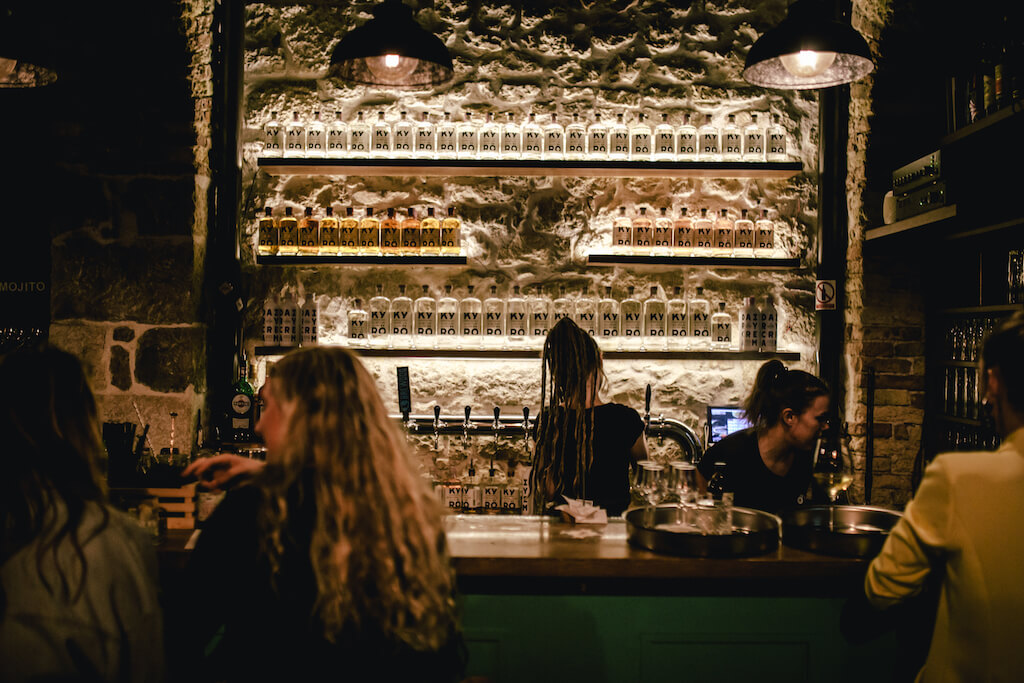
Are you aware of any initiatives to improve winter tourism in Split?
Luke Stewart: I've been following what Total Croatia News has done around the subject, but in terms of tourism, not so much. In terms of winter hospitality, many of us are trying hard, and we do every year. Many really good places stay open all year, and there are a lot of places that only open in the winter that are essentially unheard of to foreigners - and they are amazing.
What would help develop things? If the city remembered that local hospitality is just as important as tourism. Everyone that stays open all year has this idea that tourism comes second - and it will come. But if you focus just on summer tourism, you lose the local vibe, which is something people would actually come for in the winter.
Give us a few quick wins that could make Split a bit more attractive in the winter months?
Flor Vignaroli: I am from a big city - Buenos Aires. The winter is the same as the summer - or even better. In the summer, everyone goes on holiday, and during the winter, you have an endless list of things to do. Of course, things have changed with the pandemic, but you have live music, art exhibitions, museums, and street events. The Riva is an excellent location to host events during the winter. It shouldn't just be a place where locals have coffee. The City needs to offer more to the people that live here. Whether they are paid or free events, it doesn't matter. In general, there is not much going on. Look at the Koteks building, for example. It just sits there. What an amazing location to host an event!
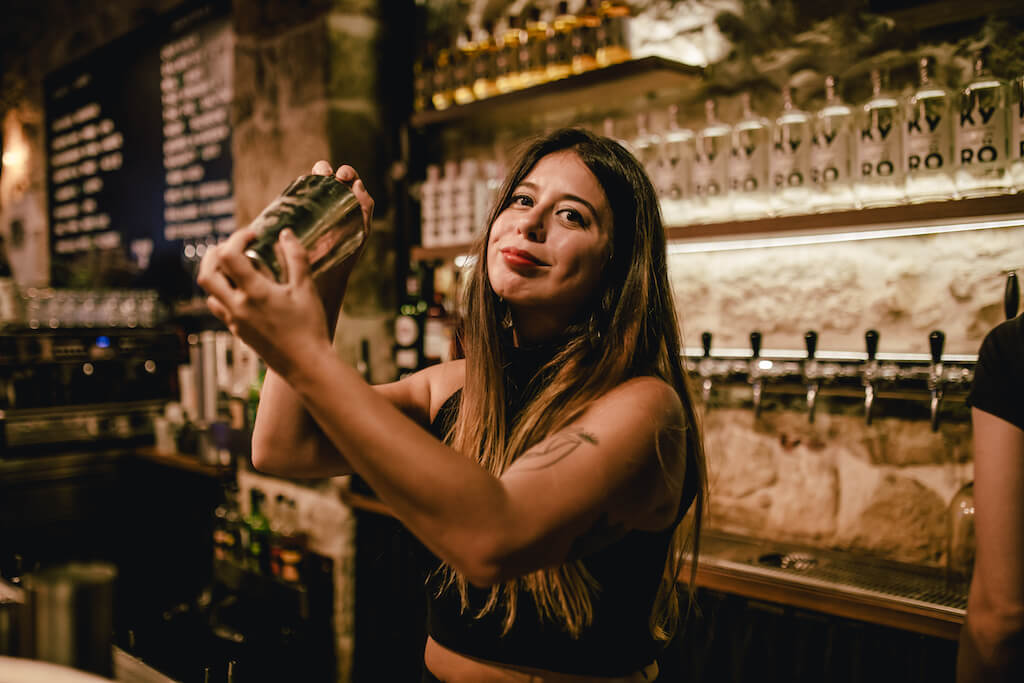
Luke Stewart: Dalmatia forgets that we are our own country; we are not just a holiday resort. You can't compare Dalmatia with the rest of Croatia as it is totally different. And it is almost like the mentality has shifted - that we are one giant holiday resort, that is what we are good at, and this idea of being a living and breathing city goes down every year. If that were fixed, that would be the change. People go to Prague or New York in the winter because of the buzzing local life - even when it's -10 degrees. The winters should not be about what we can do for tourists but what can we do as a city? If the city is alive and exciting, the tourists will come. Do you want to go on holiday to a city that's closed? It doesn't have to be waiting for you to arrive like in summer. But imagine going to a bar in Split for your first time, and it's December, and it's packed full of local people.
Flor Vignaroli: When you're traveling, you want to see the local scene. Is there even a local scene in Split at the moment? You work hard for 4 months during the season, really hard, then you have nothing to do in the city you live in when you can finally relax. We want to provide locals with something to do. Otherwise, it's boring. We don't only work for tourists. We always make sure our prices are fair for locals. We have a big selection of quality beers that range in price. We try to serve the local population.
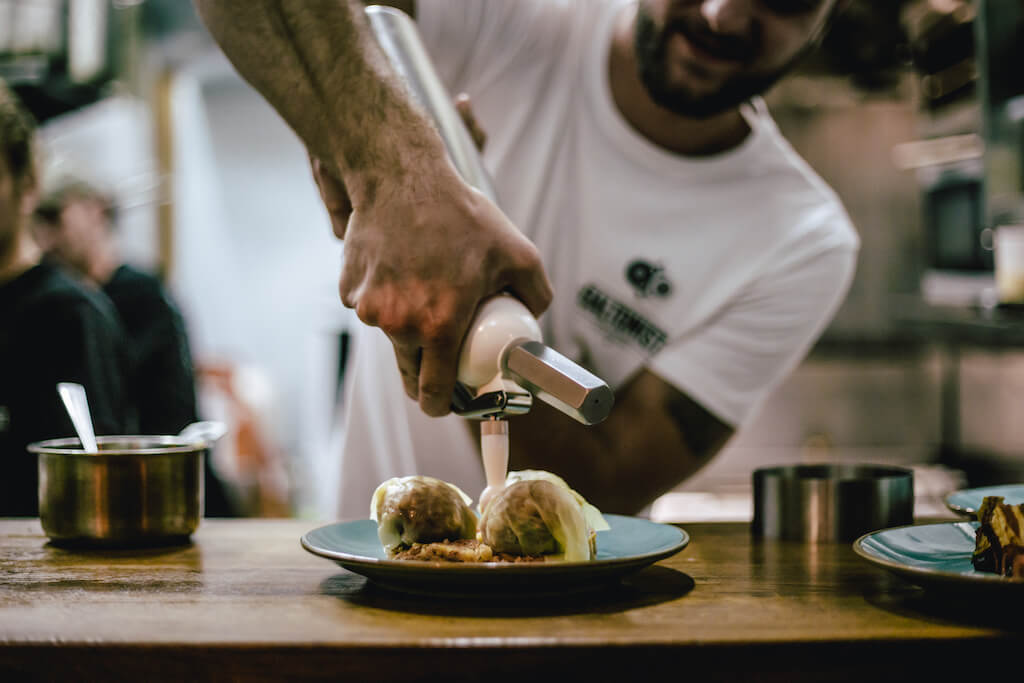
Luke Stewart: We also don't bump our prices up in the summer. We sell a more premium product in the summer with a more premium experience. Our winter is cheaper not just because we are dropping prices and margins, but we are offering something simpler. We can serve eggs benedict in summer with shaved truffles for 100 kuna, but we aren't selling the same thing for 60 kuna in the winter. We have a different version that works out to be less for local people.
And what about the winter events at The Daltonist this year?
Flor Vignaroli: We are starting with live music, DJs on Fridays and Saturdays, and are working on doing different kinds of events, for example, a chef takeover with Mate Janković. We chose Mate to launch this new event series at The Daltonist. He will create a 5-course meal paired with Croatian Varionica beer. We are selling tickets in advance to make sure we can control the Covid measures. Our idea is to offer people something different. We want to provide events we would want to attend ourselves. Things are happening in other cities, but why can't we do that while supporting local artists at the same time? We want to showcase people from Split and foreigners. We want to host an art exhibition with Luka Duplančić at the end of November, and will continue with events in December. We also hosted a gin masterclass last month and did a bar takeover in Zagreb a few weeks ago, and we plan on doing the same in Split.
Someone suggested we do an open mic night, so we are discussing that idea right now. We want to offer something different every day of the week. We have the space for it, so why not?
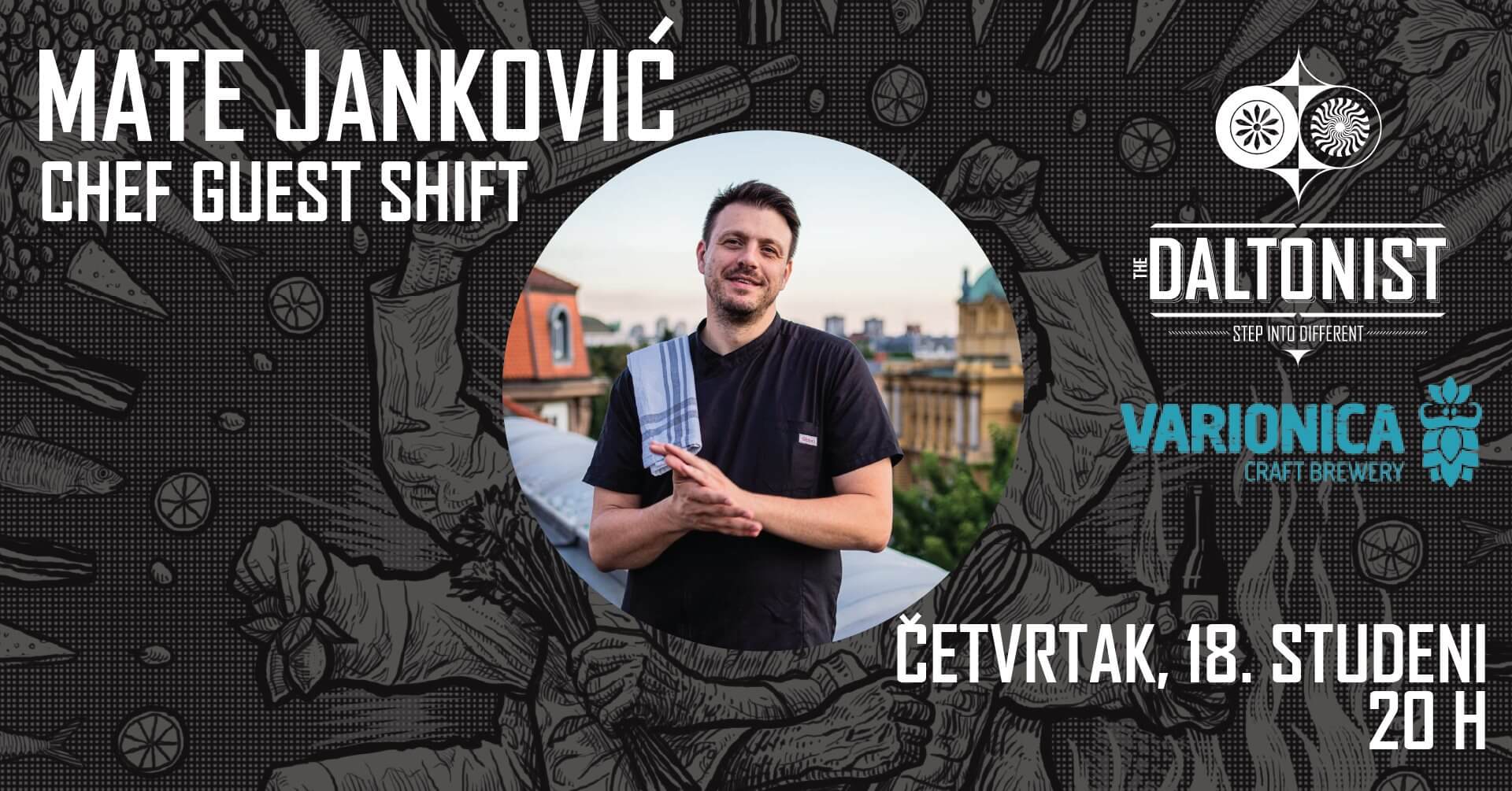
Luke Stewart: Our goal this winter is to focus on community-based events. And mainly to have fun. You work your ass off in the summer. Hospitality is a fun job, and we all work in this because we don't want that boring 9-5. We have friends all over the country doing the same thing. So now, in the winter, we get to create events that are fun for us while giving back to the local community.
For example, our neighbor has the best coffee in Split (Soul Coffee). He attracts the morning crowd while we draw the evening crowd. But in the winter, it is too cold for him to work. We have zero interest in selling coffee, but because we have a good relationship, and his coffee is great, we are selling it at The Daltonist this winter. That way, his local customers get the Soul Coffee experience year-round, and we get to sell great specialty coffee. It's a win-win for everyone.
Winter is just as enjoyable for us as the summer. We don't plan on closing at all, apart from New Year's Day, as we are all too hungover to work. This winter will undoubtedly bring more challenges, especially since we killed smoking. But we really believe in it and aren't trying to stay open to make crazy money.
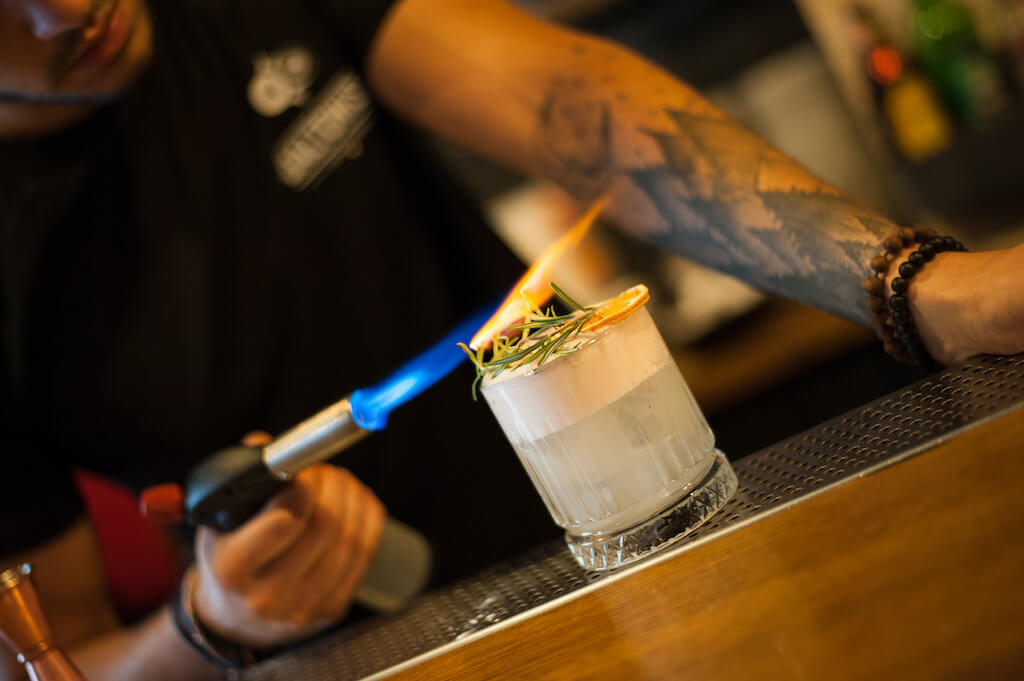
In the middle of the interview, an inspector visited The Daltonist telling them they had to take down the decorative plants hanging on the outside wall as someone had reported it.
Luke Stewart: That would really help winter tourism. On a national, regional, and city level, the government is constantly trying to suffocate and choke the people who are trying to make things happen. People try to do nice things here, and then the inspector comes and tries to punish you for it. You're often driven to the point of wondering why you're even trying. It's really draining.
In general, small businesses are enemies of the state. But small businesses drive community and culture. And that is what we bring people in the winter. If a business is allowed to thrive, it is good for the local and travel economies.
Flor Vignaroli: Digital nomads, for example, want a nice co-working space and apartment, but when they close their laptop, they want to have fun. And where will they go if the city is dead? So that is a massive point of why we are doing what we are doing. For the local community and for the people wanting to live here.
How has your clientele shifted moving from summer to winter?
Luke Stewart: We are still seeing a lot of foreigners, but we are also seeing people staying here long-term, from digital nomads to people escaping Covid at home. We noticed a lot more long-term visitors in the summer as well, whether it is for one month or three months. The digital nomad movement has been a huge part of that. So while there may be fewer tourists, it feels like a lot of foreigners are still here.
The local crowd also comes back out in the winter. You don't see any locals in the summer because they're either working or staying away from Split. October is the month where we see the shift. We like it best when it's 50/50 - half locals, half foreigners. That's when we feel most like an international bar. And that's what winter tourism is about.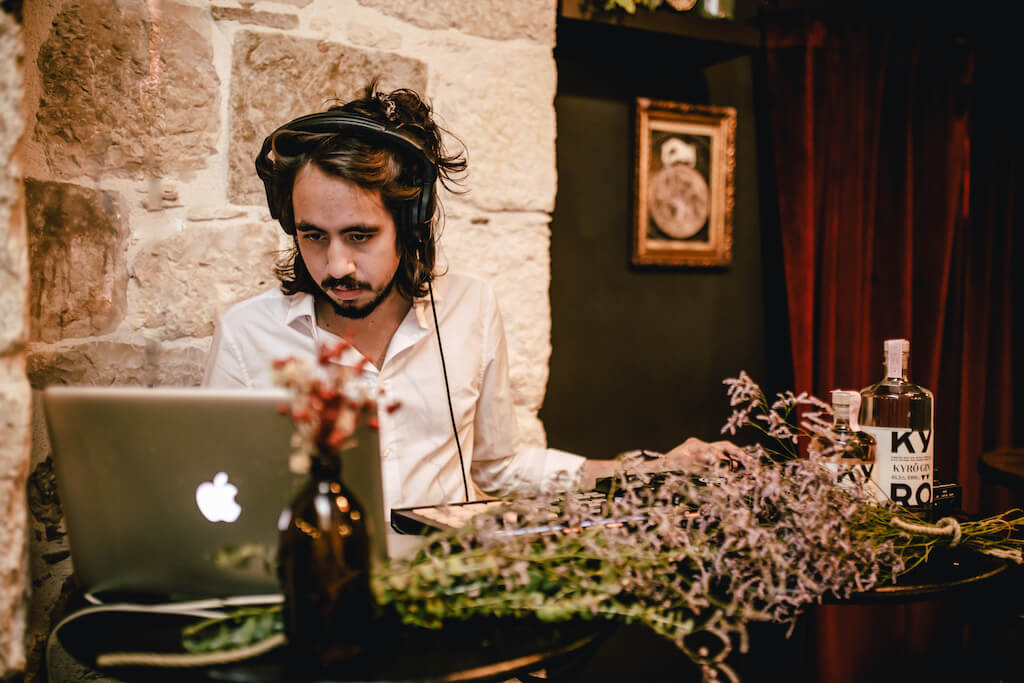 What are the critical steps to getting more flights in winter?
What are the critical steps to getting more flights in winter?
Luke Stewart: Umm... to try. Trying would be good. Don't sue people who are trying; that also helps.
Flor Vignaroli: We are foreigners. We live here for a reason. We choose to live here because we actually like the country. But, of course, we want to see Croatia succeed. There is so much potential here. Why is so much not working?
Luke Stewart: Croatia as a place is incredible. But I can't say the same for the Croatian state. We work in hospitality and don't even see ourselves as working in tourism. But I will say that I think that the Croatian coast needs to work on itself before it can expect people to come. Why would you want to go to Belgrade in the winter? It's alive with people, just like Zagreb.
This winter tourism thing is backward. "If you come, we will do something." It should be that we are doing something because we want to, and then people will notice. You can see this in the mentality of some businesses. They think, "well, we are open, so why aren't you coming?" But it would help if you opened it because you believe in what you are doing, and then people will take notice.
Flor Vignaroli: The City of Split needs to invest in culture. It's as simple as that. Invest in local artists, invest in making Split more attractive to its people. How hard is it to do a couple of cool events a month? There are so many cool artists and really talented people here, but you have to give them the space.
A message to other businesses in Split?
Luke Stewart: The first thing that comes to mind is every business owner here, whether it's the summer or not, has trouble finding skilled employees. The reason is that skilled employees are not provided with year-round stable work, so they leave. If we had a year-round economy, we wouldn't have the brain drain and population decrease. Even if you only worked 3 months a year, it would be so much easier if the economy works year-round. The best workers leave to go elsewhere, and I think working year-round would revolutionize not just the winter but the summer as well.
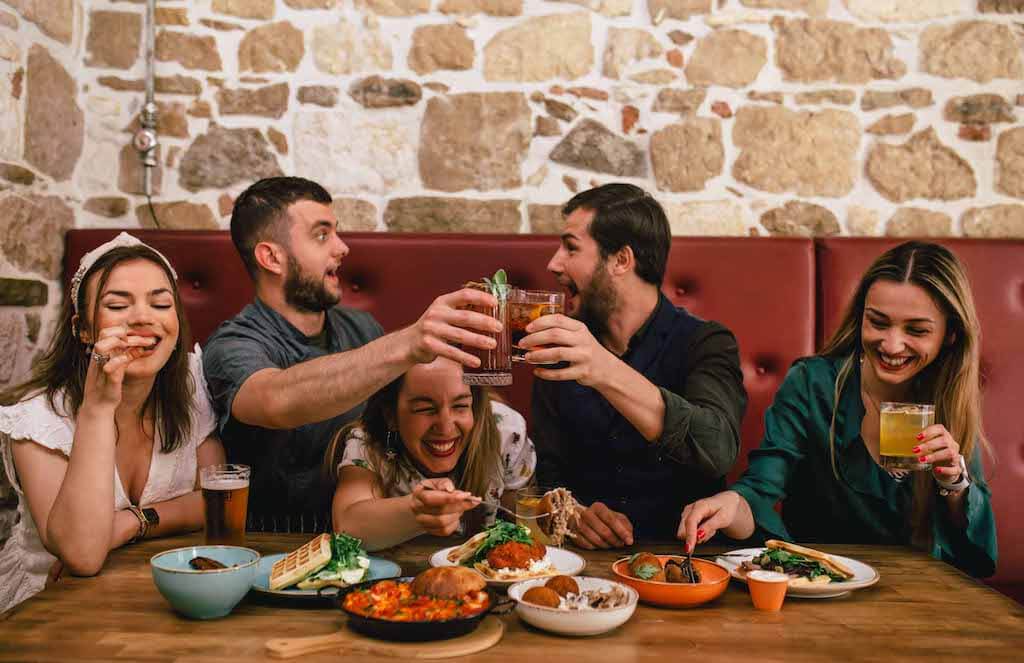
A big part of staying open in the winter for The Daltonist is that we have developed an amazing team, and we are all here long-term. Businesses rely on their people. When you can provide people with stable, year-round work, everything develops much faster. So we thought not about how little we could get away with but instead how much. That revolutionized things for us. And looking at things metaphorically, if you invest more into Split, there will be more tourism.
If you are a business in Split with a winter program, please contact This email address is being protected from spambots. You need JavaScript enabled to view it. with the subject Split Winter Tourism.
Croatia to Procure 2 New COVID Drugs through EU: Vecernji List
ZAGREB, 10 November, 2021 - Croatia, together with other member states of the European Union, is participating in talks on a joint public procurement of two new COVID-19 drugs, Večernji List daily reported on Wednesday.
"We have joined the European Commission's (EC) public procurement to be able to adequately treat our patients. An expert commission will determine the quantities of each drug to be procured for Croatia," Health Minister Vili Beroš said, as carried by the daily.
The European Medicines Agency has started a review of the available data on Merck's medicine against COVID, molnupiravir, to enable interested countries to start with the procurement and use of the medicine as soon as possible, even before it is officially authorised.
At the same time, according to diplomatic sources, the EU is negotiating with Merck, but also with Pfizer, the producer of an antiviral pill, about possible purchase agreements for a drug that would be used to treat COVID patients.
Both pharmaceutical companies have developed drugs that change the course of the infection in clinical trials, and taking them after the onset of symptoms reduces the risk of the severity of the infection and death: Merck's by 50% and Pfizer's by 89%. Both drugs are given for 5 days and are intended for home use.
Highest Number of First COVID Vaccine Doses Given since June
ZAGREB, 10 November, 2021 - On Tuesday 15,204 persons received the first dose of a COVID-19 vaccine, the highest number since June, and a total of 24,505 doses were administered, the most since July, the Croatian Institute of Public Health (HZJZ) said on Wednesday.
That was the highest number of first doses since 10 June, when 16,258 were given, and the highest number of total doses since 8 July, when 28,640 were given.
HZJZ director Krunoslav Capak said that after the summer break, citizens had evidently decided to get vaccinated in greater numbers. "We are happy with this decision, both for those who decided to get a first dose and those who decided to get a second or third dose."
"After a year and a half of living in a pandemic, it's clear to everyone that vaccination is the way out. Only with vaccination can we keep our jobs and our children in school," he said.
President's Office says PM Tried to Humiliate Military Chief-of-Staff
ZAGREB, 10 November, 2021 - President Zoran Milanović's office said on Tuesday that at today's press conference after a Defence Council meeting, Prime Minister Andrej Plenković "tried to humiliate the Chief of the General Staff of the Armed Forces with lies."
Speaking of the meeting, Plenković said he hoped the military chief of staff, Admiral Robert Hranj, was well and that he enjoyed the freedom of speech like everyone else. "There were situations where he was not allowed to answer direct questions at the meeting," he added.
The president's office said in a press release that "Plenković decided to lie even about the content of today's Defence Council meeting and thereby show once again what kind of person he is," and that "in his statement to the press he decided to publicly humiliate" Hranj.
"To say that Admiral Robert Hranj was not allowed to speak at the meeting is a blatant lie. Quite the contrary, it was not allowed to unscrupulously manipulate the Chief of the General Staff of the Armed Forces," the press release said, adding that to allow "the belittling of one of the best Croatian officers... would be surreal."
Croatia Logs Highest Number of New Coronavirus Cases to Date at 7,315
ZAGREB, 10 November, 2021 - In the last 24 hours 7,315 coronavirus cases have been registered in Croatia, the highest daily number of new cases since the start of the pandemic, Croatian Television reported on Wednesday.
A week ago today there were 4,573 new cases and two weeks ago today 4,571.
Yesterday 4,966 new cases were reported as well as 59 deaths, the highest number of deaths in the fourth wave of the pandemic.
Ex-Minister Žalac, Central Finance and Contracting Agency Director Arrested
ZAGREB, 10 November, 2021 - Former regional development and EU funds minister Gabrijela Žalac, Central Finance and Contracting Agency (SAFU) director Tomislav Petric and two other persons were arrested on Wednesday as part of an operation by the European Public Prosecutor's Office (EPPO) in Croatia.
They were arrested in a case dubbed Software. EPPO Croatia said it was urgently collecting evidence regarding four persons in cooperation with the police anti-corruption office PNUSKOK.
The four are suspected of crimes committed in the ministry and SAFU related to the public procurement of an information system.
After they are questioned, EPPO Croatia said, it will decide on further action and until then no further details will be provided.
The Police Directorate said the criminal investigation also included several businesses in Zagreb, Split-Dalmatia County and Vukovar-Srijem County.
After the investigation, the police will press charges against the suspects with EPPO Croatia, the Police Directorate added.
The case concerns the design of a HRK 16.2 million software which the Ministry of Regional Development and EU Funds, when Žalac was minister, awarded to the Ampelos company.
Three weeks ago, acting on EPPO's orders, police conducted several searches in the ministry and seized documents relating to the Ampelos job.
(€1 = HRK 7.5)


